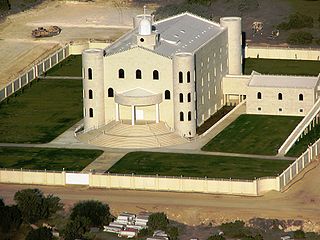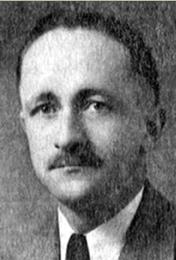This page is based on this
Wikipedia article Text is available under the
CC BY-SA 4.0 license; additional terms may apply.
Images, videos and audio are available under their respective licenses.
In the Latter Day Saint movement, the President of the Church is generally considered to be the highest office of the church. It was the office held by Joseph Smith, founder of the movement, and the office assumed by many of Smith's claimed successors, such as Brigham Young, Joseph Smith III, Sidney Rigdon, and James Strang. Several other titles have been associated with this office, including First Elder of the church, Presiding High Priest, President of the High Priesthood, Trustee-in-Trust for the church, Prophet, Seer, Revelator, and Translator. Joseph Smith was known by all of these titles in his lifetime.

The Fundamentalist Church of Jesus Christ of Latter-Day Saints is one of the largest of the fundamentalist Mormon denominations and one of the largest organizations in the United States whose members practice polygamy. The FLDS Church emerged in the early 20th century when its founding members left The Church of Jesus Christ of Latter-day Saints. The split occurred largely because of the LDS Church's suspension of the practice of polygamy and its decision to excommunicate members who continued the practice.

The Latter Day Saint movement is the collection of independent church groups that trace their origins to a Christian primitivist movement founded by Joseph Smith in the late 1820s. Collectively, these churches have over 16 million members, although the vast majority of these—about 98%—belong to The Church of Jesus Christ of Latter-day Saints. The predominant theology of the churches in the movement is Mormonism, a form of Christianity usually categorized as Restorationist. A minority of Latter Day Saint adherents, such as members of the Community of Christ, believe in traditional Protestant theology, and have distanced themselves from some of the distinctive doctrines of the LDS Church. Other groups include the Remnant Church of Jesus Christ of Latter Day Saints, which supports lineal succession of leadership from Smith's descendants, and the more controversial Fundamentalist Church of Jesus Christ of Latter-Day Saints, which defends the practice of polygamy.

Mormon fundamentalism is a belief in the validity of selected fundamental aspects of Mormonism as taught and practiced in the nineteenth century, particularly during the administrations of Joseph Smith and Brigham Young, the first two presidents of The Church of Jesus Christ of Latter-day Saints. Mormon fundamentalists seek to uphold tenets and practices no longer held by mainstream Mormons. The principle most often associated with Mormon fundamentalism is plural marriage, a form of polygyny first taught in the Latter Day Saint movement by Joseph Smith, the founder of the movement. A second and closely associated principle is that of the United Order, a form of egalitarian communalism. Mormon fundamentalists believe that these and other principles were wrongly abandoned or changed by the LDS Church in its efforts to become reconciled with mainstream American society. Today, the LDS Church excommunicates any of its members who practice plural marriage or who otherwise closely associate themselves with Mormon fundamentalist practices.
Flora Jessop is an American social activist, author, and advocate for abused children.

John Wickersham Woolley was an American Latter Day Saint and one of the founders of the Mormon fundamentalism movement. Most Mormon fundamentalist groups trace their origin directly or indirectly to Woolley.

Joseph Leslie Broadbent was a religious leader in the early stages of the Mormon fundamentalist movement.
Jeffs is a surname that may refer to:
Jessop is a surname, and may refer to:

John Yeates Barlow was a Mormon fundamentalist leader in Short Creek, Arizona.

The Short Creek Community, founded in 1913, began as a small ranching town in the Arizona Strip. In the 1930s it was settled by Mormon fundamentalists, who remain there to this day.
Winston Blackmore is the leader of a polygamous Fundamentalist Church of Jesus Christ of Latter-Day Saints group in Canada. He is described as "Canada's best-known avowed polygamist".

The term placement marriage refers to arranged marriages between members of the Fundamentalist Church of Jesus Christ of Latter-Day Saints. Placement marriage is believed and practiced by members of the FLDS Church to show their commitment and obedience in order to obtain salvation for themselves and their parents; it might be considered “the most visible outward symbol of members’ devotion."
The Church of Jesus Christ of Latter-day Saints and the Kingdom of God is a Mormon fundamentalist church in the Latter Day Saint movement. The sect was founded by Frank Naylor and Ivan Nielsen, who split from the Centennial Park group, another fundamentalist church. The church is estimated to have 200–300 members, most of whom reside in the Salt Lake Valley. The group is also known as the Third Ward or the Naylor group, after Frank Naylor.
Kingston is an English surname. Notable people with the surname include:

The Council of Friends was one of the original expressions of Mormon fundamentalism, having its origins in the teachings of Lorin C. Woolley, a dairy farmer excommunicated from The Church of Jesus Christ of Latter-day Saints in 1924.





